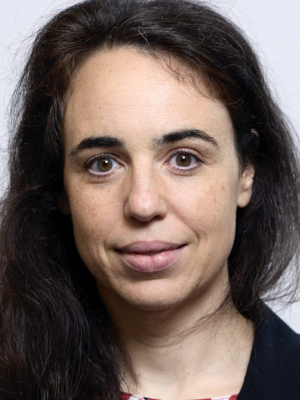Keynote #1 Tuesday: Miriam Fernandez
Title of talk: Responsible AI and the Urgent Challenge of Technology-Facilitated Gender-Based Violence

Abstract: Technology is now embedded in nearly every aspect of our lives, shaping how we work, communicate, and connect. Yet, while online spaces have become central to social interaction, they remain profoundly unsafe for many. Women and girls, in particular, continue to face disproportionate risks from technology-facilitated violence, including harassment, stalking, deepfake pornography, and algorithmic discrimination.
In this talk, I explore how current technologies, from social media platforms and generative AI tools to IoT devices, perpetuate and amplify gender-based harms. I will discuss some of the initiatives and research efforts aimed at tackling these issues, as well as the technical, social, and legal challenges that continue to hinder meaningful protection for women and girls worldwide.
Bio: Miriam Fernandez is a Professor of Responsible Artificial Intelligence at the Knowledge Media Institute (KMi), Open University (OU), UK. Her research agenda revolves around advancing Responsible AI, ensuring that technological innovation aligns with ethical principles and societal values. Her pioneering work spans diverse domains, from algorithmic transparency and fairness to the societal implications of AI deployment. By integrating AI techniques with a human-centred approach, she fosters solutions that prioritise social responsibility, transparency, and inclusivity. With a portfolio of more than 100 scientific articles in some of the best conferences and journals in her field, and having won numerous external grants supporting her research, Professor Fernandez has significantly influenced the discourse in the field of technology development and its impact on society. Her commitment to education is demonstrated through her leadership of OUAnalyse, a strategic initiative leveraging machine-learning methods for the early identification of students at risk. This technology, currently supporting the Open University’s 200K student body, has been highly awarded for its transformative impact on student outcomes. Professor Fernandez is also Equality and Diversity Champion for both KMi and the OU, where she leads the Responsible AI stream of the Center for Protecting Women Online, a flagship initiative that plays a critical role in mitigating the harmful effects of technology on women and girls worldwide.
Keynote #2 Wednesday: Emma Ruttkamp-Bloem
Title of talk: The Future of AI Ethics

Abstract: AI ethics has evolved through various phases over the past decade, and currently is at risk of simply disappearing off the radar in debates on ‘responsible AI’. I offer an interpretation of AI ethics to turn this situation around.
Until about 2020, AI ethics was portrayed as a principle-driven ethics, which resulted in reams of documents containing abstract principles and little or no information on how to action these principles. The realisation around 2021, that, given their abstract nature, most of these documents were basically impactless, led to a kind of ‘technical turn’ in AI ethics, where the call was to move from the ‘what’ (principles) to the ‘how’ of AI ethics. This turn culminated, among other things, in the change in responsible AI narratives from ethics to safety, and from harm to risk. This is worrying for reasons to do with the so-called ‘AI power paradox’.
I argue that in fact, AI practitioners and policy-makers should be focused on the ‘why’ of AI ethics, which implies interpreting AI ethics as a dynamic reasoning system focused on building resilience against potential harm from engagement with AI technology, and therefore, ultimately focused on determining the conditions for establishing societies that can thrive in their engagement with AI technology, rather than being focused on regulating the technology.
Bio: Emma Ruttkamp-Bloem is a philosopher of science and technology, an AI ethics policy advisor, and a machine ethics researcher. Currently, she is the Head of the Department of Philosophy, University of Pretoria, and leads the AI ethics group at the South African Centre for AI Research (CAIR). She is the current Chairperson of the UNESCO World Commission on the Ethics of Scientific Knowledge and Technology (COMEST). Emma joined the WEF’s Global Future Council on Autonomous Systems in 2025. She is a member of the Global Academic Network, Centre for AI and Digital Policy, Washington DC, and has worked on AI governance projects with the African Union Development Agency and the African Commission on Human and People’s Rights. She was a member of the UN Secretary General’s AI Advisory Body 2023-2024. Emma led the UNESCO Ad Hoc Expert Group that prepared the draft of the 2021 UNESCO Recommendation on the Ethics of AI and contributed to development of its implementation instruments. Emma continues to work with UNESCO as a member of UNESCO’ AI Ethics without Borders and Women4EthicalAI initiatives. She is a member of various international AI ethics advisory boards ranging from academia (e.g., the Wallenberg AI, Autonomous Systems and Software Programme Human Sciences), the inter-governmental sector (e.g., as expert advisory board member for the Global Commission on Responsible Artificial Intelligence in the Military Domain), to the private sector (e.g., SAP SE). She is an associate editor for the Journal of Science and Engineering Ethics, and a member of the editorial board of the Journal of AI Law and Regulation and the Cambridge Forum on AI: Law and Governance.
